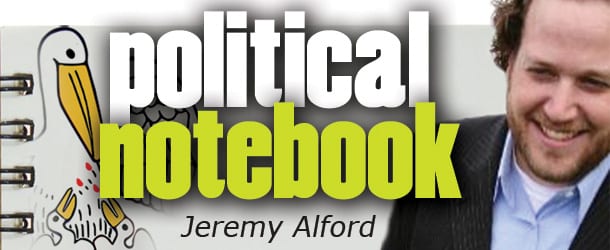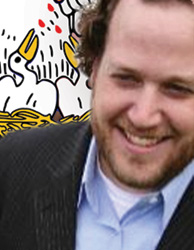By Jeremy Alford & Mitch Rabalais
LaPolitics: As a conferee on the Farm Bill, you have been directly involved in the negotiations around the bill. What, in your opinion, is the biggest impasse that is preventing passage of this legislation?
Congressman Ralph Abraham, R-Alto: We passed it on the House side, and there was, of course, some controversy on the work requirements for SNAP. As you know, I’m a big advocate of [the idea that] people that can work need to work. We certainly want to take care of those who are disabled; we want to take care of those who are pregnant; and certainly the children. But those who are in that 59-to 18-year old age group; that have none of those physical or mental disabilities or don’t fall into any one of those categories; I want them to work a little bit.
We’re not asking them to work a lot. If they can’t find that good job, we’re going to give them money to help train for that good job.
So that was one of the things on the House side that we were butting heads with the Democrats on. But we prevailed. Now, it’s over on the Senate side now, and unfortunately, you have one or two members on the Democrats side blocking the Farm Bill simply because they think that with Congress returning after the elections, the Democrats are going to control the Senate. [Editor’s note: This interview was conducted before the recent mid-term elections.] That’s not going to happen. So I do have a problem when you have one member that is able to stall a very good bill for the rest of America.
LaPolitics: You said it yourself: you are a big advocate for these work requirements. This is something that Republicans as a whole are very much for. And we’ve seen the White House and President Donald Trump get behind this. Are the work requirements a deal breaker for Republicans?
Abraham: Well, no, not at all. Look, I mean everything is on the table. But not only are Republicans for these work requirements, if you poll any group, including Democrats, you get over 80 percent favorable polling on this one particular issue.
Look, we all want to help those that need the help. I certainly don’t mind my tax dollars going for those who have true food insecurity. I don’t want anybody in America to be hungry. But at the same time, those that are gaming the system and those that can work that are not working, they need to go to work. We have over seven million living wage — not minimum wage — jobs that we can’t fill right now because this economy is so good. And as I said, if they don’t have the education or the training to get that good job, in this particular Farm Bill, we are going to allow them to go and get that training on the taxpayers’ money and hopefully get that good job.
So it’s a win-win, as I call it in my arena: an on-ramp to success. Everybody who needs a job should be able to get a job. Everybody that can work, needs to work.
LaPolitics: Something else you mentioned is the timetable on the Farm Bill. Some are thinking that this is going to happen when Congress comes back. In your opinion, is this something that will be handled in December, or are we going to have to wait until new members take office in January?
Abraham: Sometime between the election and the first of the year, I think we will get this Farm Bill voted on, on the Senate side. They’re going to pass it over there; it will come back to us in the House as what we call a “conferee bill,” and we’ll get it to the president’s desk. The president has said that he wants to sign this bill. This is a good bill, not only for our young farmers; it’s a great bill for conservation programs; it’s a great bill for giving our farmers a safety net.
Right now, we’re into a soybean crisis because we don’t have anywhere to store soybeans. And unfortunately, because it’s been such a wet harvest season, a lot of these are damaged soybeans.
So this Farm Bill is a win-win for our farmers. I guess if there is any light at the end of the tunnel, as far as some of these programs expiring, those that are supported by the Democrats are going to run out of money before those that are supported by the Republicans are going to run out of money on this current Farm Bill.
Right now, we’re working under the 2014 Farm Bill. So, like it or not, the Democrats are going to have to come to the table to get this thing done. But I do predict with us holding the Senate on the Republican side, you will see this happen very quickly when we return after the elections.
Q&A: Manship Dean Talks Elections
LaPolitics: We saw some big news come out of LSU’s Manship School of Mass Communication recently about the poll your staff conducted in partnership with the Cook Political Report. Consultant James Carville was a big part of that as well. How did this project come about?
Manship School of Mass Communication Dean Martin Johnson: Well, James was a part of it, primarily because it was his suggestion. And he put a lot of work into helping us get it off the ground.
However, the real work of it, in terms of conducting the survey itself, was done by Mike Henderson, the director of the Public Policy Lab here at the Manship School. So there were several of us that worked on it — Mike, me, James and Jenee Slocum.
We put together a midterms survey with questions that were essentially repeats from a similar project in 2010, assessing the first midterm elections that Barack Obama faced. By replicating those questions, we could make some interesting comparisons between President Trump’s first midterms and President Obama’s first midterms.
LaPolitics: This was a project that has gotten a lot of attention outside of Louisiana, especially on Capitol Hill. What does it mean for the Manship School and the Reilly Center to be producing these big-ticket type projects?
Johnson: First and foremost, we want to be part of the national conversation. We want to lead the national conversation. And to do that, you have got to do relevant work. So I think that was a core part of James’ motivation … wanting to encourage that kind of national scope ambition. We see in a lot of things we do, we have that national-scope ambition, so it fit right in …
That was a special thing, as well as getting into the depth assessments of the president, assessments of the politics of the midterms. It was way beyond the generic ballot horserace kind of survey, which is what we usually see.
LaPolitics: Without revealing too much, can you tell us about some of the projects you have planned for next year, with our statewide elections coming up?
Johnson: Of course, everybody should look to our annual Louisiana Survey. We will absolutely do the annual Louisiana survey. In terms of other specific state projects, we’re definitely talking about how to contribute. We have always been a place, especially since the inception of the Reilly Center, that tried to convene interesting, policy-relevant conversations for the state of Louisiana. And of course, we will continue to do that into 2019. So look for more on the horizon.
Political History: The Bridge To Nowhere
As the name suggests, the Sunshine Bridge in St. James Parish was the brainchild of the late Gov. Jimmie Davis, the Bayou State governor who moonlighted as a country and western singer. Davis’ classic hit “You Are My Sunshine,” is one of the top-selling songs of all time.
In 1960, Davis put music aside and returned to the Governor’s Mansion for a second term. Once back in office, he began pushing for a solution to a glaring need he had noticed while campaigning.
In South Louisiana, you could only cross the Mississippi River on the Huey P. Long Bridge in Jefferson Parish and its twin in Baton Rouge. The nearly 80-mile gap was a major problem, especially when the state was trying to lure business to the River Parishes and the Acadiana region. “We couldn’t get industry to locate on the west side of the river until we had a bridge,” Davis later recalled.
The Sunshine Governor gave the green light for the project, and sent his engineers out to work. After considering their options, the highway department picked a prime spot on the Ascension/St. James parish line, nearly halfway between New Orleans and Baton Rouge.
There was only one problem — there were no connecting roads even close to where the bridge was going to be located. According to The Advocate’s coverage at the time, the bridge started in a cane field and ended in a swamp. Lawmakers opposed to the project started calling it “the bridge to nowhere.”
Despite the less than promising prospects, the governor pushed the $30-million appropriation through the Legislature. According to You Are My Sunshine, a biography of Davis by Gus Weill, as the project neared completion, floor leaders wanted to name the new bridge after the governor, as Long had done before. Because existing law prevented them from directly naming the structure after a living person, they adopted the “Sunshine” moniker instead as a tribute to Davis.
When a reporter asked the governor what he thought about the new bridge’s name, Davis played coy. He claimed not to know the specifics, but said, “I think it’s because the sun rises in the East and sets in the West.”
For more Louisiana political news, visit www.LaPolitics.com or follow Jeremy Alford on Twitter @LaPoliticsNow.
















Comments are closed.